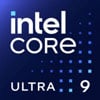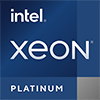
Intel Core i7-12700KF Benchmark, Test and specs
Last updated:
The Intel Core i7-12700KF is a 12 core processor. It can handle 20 threads simultaneously and was introduced in Q4/2021. The Intel Core i7-12700KF is based on the 12. generation of the Intel Core i7 series and requires a mainboard with the socket LGA 1700. The Intel Core i7-12700KF scores 1,872 points with one CPU core in the Geekbench 5 benchmark. When using all CPU cores, the result is 14,992 points.

| Name: | Intel Core i7-12700KF |
|---|---|
| Family: | Intel Core i7 (298) |
| CPU group: | Intel Core i 12000 (34) |
| Architecture: | Alder Lake S |
| Segment: | Desktop / Server |
| Generation: | 12 |
| Predecessor: | Intel Core i7-11700KF |
| Successor: | Intel Core i7-13700KF |
CPU Cores and Base Frequency
The 12 CPU cores of the Intel Core i7-12700KF clock with 3.60 GHz (5.00 GHz). The number of CPU cores and the clock frequency of the processor are largely responsible for the overall performance.
| CPU Cores / Threads: | 12 / 20 |
|---|---|
| Core architecture: | hybrid (big.LITTLE) |
| A-Core: | 8x Golden Cove |
| B-Core: | 4x Gracemont |
| Hyperthreading / SMT: | Yes |
|---|---|
| Overclocking: | Yes |
| A-Core Frequency: | 3.60 GHz (5.00 GHz) |
| B-Core Frequency: | 2.70 GHz (3.80 GHz) |
Memory & PCIeThe Intel Core i7-12700KF supports up to 128 GB memory in up to 2 (Dual Channel) memory channels. This results in a maximum memory bandwidth of 76.8 GB/s. |
|
| Memory type: | Memory bandwidth: |
|---|---|
| DDR5-4800 DDR4-3200 | 76.8 GB/s 51.2 GB/s |
| Max. Memory: | 128 GB |
| Memory channels: | 2 (Dual Channel) |
| ECC: | No |
| PCIe: | 5.0 x 20 |
| PCIe Bandwidth: | 78.8 GB/s |
Thermal ManagementWith the TDP, the processor manufacturer specifies the cooling solution required for the processor. The Intel Core i7-12700KF has a TDP of 125 W. |
|
|---|---|
| TDP (PL1 / PBP): | 125 W |
| TDP (PL2): | 190 W |
| TDP up: | -- |
| TDP down: | -- |
| Tjunction max.: | 100 °C |
Technical details
The Intel Core i7-12700KF has a 37.00 MB large cache. The processor is manufactured in 10 nm. Modern production increases the efficiency of the processor.
| Technology: | 10 nm |
|---|---|
| Chip design: | Monolithic |
| Socket: | LGA 1700 |
| L2-Cache: | 12.00 MB |
| L3-Cache: | 25.00 MB |
| AES-NI: | Yes |
| Operating systems: | Windows 10, Windows 11, Linux |
| Virtualization: | VT-x, VT-x EPT, VT-d |
|---|---|
| Instruction set (ISA): | x86-64 (64 bit) |
| ISA extensions: | SSE4.1, SSE4.2, AVX2, AVX2+ |
| Release date: | Q4/2021 |
| Release price: | 384 $ |
| Part Number: | -- |
| Documents: | Technical data sheet |
Rate this processor
Benchmark results

The benchmark results for the Intel Core i7-12700KF have been carefully checked by us. We only publish benchmark results that have been created by us or that have been submitted by a visitor and then checked by a team member. All results are based on and fullfill our benchmark guidelines.
Screenshots:
Screenshots:
Cinebench 2024 (Single-Core)
The Cinebench 2024 benchmark is based on the Redshift rendering engine, which is also used in Maxon's 3D program Cinema 4D. The benchmark runs are each 10 minutes long to test whether the processor is limited by its heat generation.

|
AMD Ryzen 5 7600X
6C 12T @ 5.30 GHz |
||

|
Intel Core i9-13900HK
14C 20T @ 5.40 GHz |
||

|
Intel Core i9-13900HX
24C 32T @ 5.40 GHz |
||
|
|
Intel Core i7-12700KF
12C 20T @ 5.00 GHz |
||

|
AMD Ryzen 9 7945HX
16C 32T @ 5.40 GHz |
||

|
Intel Core i7-13700HX
16C 24T @ 5.00 GHz |
||

|
Apple M1 Ultra (48-GPU)
20C 20T @ 3.20 GHz |
||
Cinebench 2024 (Multi-Core)
The Multi-Core test of the Cinebench 2024 benchmark uses all cpu cores to render using the Redshift rendering engine, which is also used in Maxons Cinema 4D. The benchmark run is 10 minutes long to test whether the processor is limited by its heat generation.

|
Qualcomm Snapdragon X Elite
12C 12T @ 4.25 GHzNot verified |
||

|
AMD Ryzen 9 5900X
12C 24T @ 4.80 GHz |
||

|
Intel Core i5-13500
14C 20T @ 4.80 GHz |
||
|
|
Intel Core i7-12700KF
12C 20T @ 5.00 GHz |
||

|
Intel Core i7-12700K
12C 20T @ 5.00 GHz |
||

|
Intel Xeon W-2295
18C 36T @ 4.80 GHz |
||

|
AMD Ryzen 7 7800X3D
8C 16T @ 5.00 GHz |
||
Cinebench R23 (Single-Core)
Cinebench R23 is the successor of Cinebench R20 and is also based on the Cinema 4 Suite. Cinema 4 is a worldwide used software to create 3D forms. The single-core test only uses one CPU core, the amount of cores or hyperthreading ability doesn't count.

|
AMD Ryzen 9 7900
12C 24T @ 5.40 GHz |
||

|
AMD Ryzen 9 PRO 7945
12C 24T @ 5.40 GHz |
||

|
AMD Ryzen 9 7945HX
16C 32T @ 5.40 GHz |
||
|
|
Intel Core i7-12700KF
12C 20T @ 5.00 GHz |
||

|
Intel Core i7-12700K
12C 20T @ 5.00 GHz |
||

|
Intel Core i9-12900HK
14C 20T @ 5.00 GHz |
||

|
AMD Ryzen 7 PRO 7745
8C 16T @ 5.30 GHz |
||
Cinebench R23 (Multi-Core)
Cinebench R23 is the successor of Cinebench R20 and is also based on the Cinema 4 Suite. Cinema 4 is a worldwide used software to create 3D forms. The multi-core test involves all CPU cores and taks a big advantage of hyperthreading.

|
Intel Core i5-13600K
14C 20T @ 5.10 GHz |
||

|
AMD Ryzen 9 3950X
16C 32T @ 4.00 GHz |
||

|
Apple M3 Max (16-CPU 40-GPU)
16C 16T @ 3.60 GHz |
||
|
|
Intel Core i7-12700KF
12C 20T @ 4.70 GHz |
||

|
Intel Core i7-12700K
12C 20T @ 4.70 GHz |
||

|
Intel Core i9-12900T
16C 24T @ 3.40 GHz |
||

|
Intel Core i9-7960X
16C 32T @ 3.60 GHz |
||
Geekbench 5, 64bit (Single-Core)
Geekbench 5 is a cross plattform benchmark that heavily uses the systems memory. A fast memory will push the result a lot. The single-core test only uses one CPU core, the amount of cores or hyperthreading ability doesn't count.

|
Apple M2
8C 8T @ 3.50 GHz |
||

|
Apple M2 (8-GPU)
8C 8T @ 3.50 GHz |
||

|
Intel Core Ultra 9 185H
16C 22T @ 5.10 GHz |
||
|
|
Intel Core i7-12700KF
12C 20T @ 5.00 GHz |
||

|
Intel Core i7-12700K
12C 20T @ 5.00 GHz |
||

|
AMD Ryzen 5 PRO 8640U
6C 12T @ 4.90 GHz |
||

|
AMD Ryzen 5 8640U
6C 12T @ 4.90 GHz |
||
Geekbench 5, 64bit (Multi-Core)
Geekbench 5 is a cross plattform benchmark that heavily uses the systems memory. A fast memory will push the result a lot. The multi-core test involves all CPU cores and taks a big advantage of hyperthreading.

|
Intel Xeon Gold 6346
16C 32T @ 3.60 GHz |
||

|
Apple M3 Pro (12-CPU 18-GPU)
12C 12T @ 3.80 GHz |
||

|
Intel Xeon Gold 6209U
20C 40T @ 2.50 GHz |
||
|
|
Intel Core i7-12700KF
12C 20T @ 4.70 GHz |
||

|
Intel Core i7-12700K
12C 20T @ 4.70 GHz |
||

|
Intel Core i7-13850HX
20C 28T @ 4.40 GHz |
||

|
Intel Xeon W-2195
18C 36T @ 3.40 GHz |
||
Geekbench 6 (Single-Core)
Geekbench 6 is a benchmark for modern computers, notebooks and smartphones. What is new is an optimized utilization of newer CPU architectures, e.g. based on the big.LITTLE concept and combining CPU cores of different sizes. The single-core benchmark only evaluates the performance of the fastest CPU core, the number of CPU cores in a processor is irrelevant here.

|
Apple A16 Bionic
6C 6T @ 3.46 GHz |
||

|
Intel Core i7-13700H
14C 20T @ 5.00 GHz |
||

|
Intel Core i7-13705H
14C 20T @ 5.00 GHz |
||
|
|
Intel Core i7-12700KF
12C 20T @ 5.00 GHz |
||

|
Intel Core i9-13905H
14C 20T @ 5.40 GHz |
||

|
Intel Core i7-12700K
12C 20T @ 5.00 GHz |
||

|
Intel Core i7-13800HRE
14C 20T @ 5.00 GHz |
||
Geekbench 6 (Multi-Core)
Geekbench 6 is a benchmark for modern computers, notebooks and smartphones. What is new is an optimized utilization of newer CPU architectures, e.g. based on the big.LITTLE concept and combining CPU cores of different sizes. The multi-core benchmark evaluates the performance of all of the processor's CPU cores. Virtual thread improvements such as AMD SMT or Intel's Hyper-Threading have a positive impact on the benchmark result.

|
Apple M2 Max (38-GPU)
12C 12T @ 3.50 GHz |
||

|
Apple M2 Pro (12-CPU 19-GPU)
12C 12T @ 3.50 GHz |
||

|
Intel Core i5-13500
14C 20T @ 4.20 GHz |
||
|
|
Intel Core i7-12700KF
12C 20T @ 4.70 GHz |
||

|
Intel Core i7-12700K
12C 20T @ 4.70 GHz |
||

|
Intel Core i7-13650HX
14C 20T @ 4.40 GHz |
||

|
Intel Core i7-12800HX
16C 24T @ 2.00 GHz |
||
Cinebench R20 (Single-Core)
Cinebench R20 is the successor of Cinebench R15 and is also based on the Cinema 4 Suite. Cinema 4 is a worldwide used software to create 3D forms. The single-core test only uses one CPU core, the amount of cores or hyperthreading ability doesn't count.

|
Intel Core i9-12900
16C 24T @ 5.10 GHz |
||

|
AMD Ryzen 5 7600X
6C 12T @ 5.30 GHz |
||

|
AMD Ryzen 9 7945HX
16C 32T @ 5.40 GHz |
||
|
|
Intel Core i7-12700KF
12C 20T @ 5.00 GHz |
||

|
Intel Core i7-12700K
12C 20T @ 5.00 GHz |
||

|
AMD Ryzen 9 7945HX3D
16C 32T @ 5.40 GHz |
||

|
AMD Ryzen 7 PRO 7745
8C 16T @ 5.30 GHz |
||
Cinebench R20 (Multi-Core)
Cinebench R20 is the successor of Cinebench R15 and is also based on the Cinema 4 Suite. Cinema 4 is a worldwide used software to create 3D forms. The multi-core test involves all CPU cores and taks a big advantage of hyperthreading.

|
Intel Xeon Gold 6126
12C 24T @ 3.00 GHz |
||

|
AMD Ryzen 9 3950X
16C 32T @ 4.00 GHz |
||

|
Intel Core i9-10980XE
18C 36T @ 4.30 GHz |
||
|
|
Intel Core i7-12700KF
12C 20T @ 4.70 GHz |
||

|
Intel Core i7-12700K
12C 20T @ 4.70 GHz |
||

|
Intel Xeon Platinum 8180
28C 56T @ 2.80 GHz |
||

|
AMD Ryzen 9 5900X
12C 24T @ 4.50 GHz |
||
Blender 3.1 Benchmark
In the Blender Benchmark 3.1, the scenes "monster", "junkshop" and "classroom" are rendered and the time required by the system is measured. In our benchmark we test the CPU and not the graphics card. Blender 3.1 was presented as a standalone version in March 2022.

|
Intel Core i5-13600K
14C 20T @ 5.10 GHz |
||

|
Intel Core i5-13600KF
14C 20T @ 5.10 GHz |
||

|
Intel Xeon W-2191B
18C 36T @ 3.40 GHz |
||
|
|
Intel Core i7-12700KF
12C 20T @ 4.70 GHz |
||

|
Intel Core i7-12700K
12C 20T @ 4.70 GHz |
||

|
AMD Ryzen 9 5900X
12C 24T @ 4.50 GHz |
||

|
AMD Ryzen 7 7700X
8C 16T @ 5.20 GHz |
||
Estimated results for PassMark CPU Mark
Some of the CPUs listed below have been benchmarked by CPU-monkey. However the majority of CPUs have not been tested and the results have been estimated by a CPU-monkey’s secret proprietary formula. As such they do not accurately reflect the actual Passmark CPU mark values and are not endorsed by PassMark Software Pty Ltd.

|
Intel Xeon Platinum 8180
28C 56T @ 2.80 GHz |
||

|
AMD Ryzen 7 7800X3D
8C 16T @ 4.60 GHz |
||

|
Intel Xeon Gold 6242R
20C 40T @ 3.30 GHz |
||
|
|
Intel Core i7-12700KF
12C 20T @ 4.70 GHz |
||

|
Intel Core i7-12700K
12C 20T @ 4.70 GHz |
||

|
AMD Ryzen 9 PRO 5945
12C 24T @ 3.00 GHz |
||

|
Intel Core i7-13700HX
16C 24T @ 4.20 GHz |
||
CPU-Z Benchmark 17 (Single-Core)
The CPU-Z benchmark measures a processor's performance by measuring the time it takes the system to complete all benchmark calculations. The faster the benchmark is completed, the higher the score.

|
AMD Ryzen 9 7900X
12C 24T @ 5.40 GHz |
||

|
AMD Ryzen 9 7950X
16C 32T @ 5.20 GHz |
||

|
Intel Core i7-12700K
12C 20T @ 4.70 GHz |
||
|
|
Intel Core i7-12700KF
12C 20T @ 4.70 GHz |
||

|
Intel Core i5-13500
14C 20T @ 4.20 GHz |
||

|
AMD Ryzen 7 7700X
8C 16T @ 5.20 GHz |
||

|
Intel Core Ultra 9 185H
16C 22T @ 4.50 GHz |
||
CPU-Z Benchmark 17 (Multi-Core)
The CPU-Z benchmark measures a processor's performance by measuring the time it takes the system to complete all benchmark calculations. The faster the benchmark is completed, the higher the score.

|
Intel Core Ultra 9 185H
16C 22T @ 2.30 GHz |
||

|
Intel Core i9-7960X
16C 32T @ 2.80 GHz |
||

|
AMD Ryzen 9 3900
12C 24T @ 3.10 GHz |
||
|
|
Intel Core i7-12700KF
12C 20T @ 3.60 GHz |
||

|
Intel Core i7-12700K
12C 20T @ 3.60 GHz |
||

|
AMD Ryzen 9 5900
12C 24T @ 3.00 GHz |
||

|
AMD Ryzen 9 7940HS
8C 16T @ 4.00 GHz |
||
Cinebench R15 (Single-Core)
Cinebench R15 is the successor of Cinebench 11.5 and is also based on the Cinema 4 Suite. Cinema 4 is a worldwide used software to create 3D forms. The single-core test only uses one CPU core, the amount of cores or hyperthreading ability doesn't count.

|
Intel Core i5-13600K
14C 20T @ 5.10 GHz |
||

|
Intel Core i9-12900
16C 24T @ 5.10 GHz |
||

|
Intel Core i9-12900F
16C 24T @ 5.10 GHz |
||
|
|
Intel Core i7-12700KF
12C 20T @ 5.00 GHz |
||

|
Intel Core i7-12700K
12C 20T @ 5.00 GHz |
||

|
Intel Core i7-13700HX
16C 24T @ 5.00 GHz |
||

|
AMD Ryzen 9 5950X
16C 32T @ 4.90 GHz |
||
Cinebench R15 (Multi-Core)
Cinebench R15 is the successor of Cinebench 11.5 and is also based on the Cinema 4 Suite. Cinema 4 is a worldwide used software to create 3D forms. The multi-core test involves all CPU cores and taks a big advantage of hyperthreading.

|
Intel Xeon W-2295
18C 36T @ 3.80 GHz |
||

|
Apple M3 Max (16-CPU 40-GPU)
16C 16T @ 3.60 GHz |
||

|
AMD Ryzen 7 7700X
8C 16T @ 5.20 GHz |
||
|
|
Intel Core i7-12700KF
12C 20T @ 4.70 GHz |
||

|
Intel Core i7-12700K
12C 20T @ 4.70 GHz |
||

|
Intel Xeon Gold 6148F
20C 40T @ 3.00 GHz |
||

|
Intel Xeon Gold 6148
20C 40T @ 3.00 GHz |
||
Benchmarks

Cinebench 2024 (SC)
272 entries
272 entries

Cinebench 2024 (MC)
271 entries
271 entries

Cinebench R23 (SC)
586 entries
586 entries

Cinebench R23 (MC)
565 entries
565 entries

Geekbench 5 (SC)
2,488 entries
2,488 entries

Geekbench 5 (MC)
2,461 entries
2,461 entries

Geekbench 6 (SC)
1,755 entries
1,755 entries

Geekbench 6 (MC)
1,703 entries
1,703 entries

Cinebench R20 (SC)
656 entries
656 entries

Cinebench R20 (MC)
604 entries
604 entries

Blender 3.1 Benchmark
212 entries
212 entries

PassMark CPU-Mark
2,392 entries
2,392 entries

CPU-Z Benchmark 17 (SC)
231 entries
231 entries

CPU-Z Benchmark 17 (MC)
733 entries
733 entries

V-Ray CPU-Render
249 entries
249 entries

Cinebench R15 (SC)
1,106 entries
1,106 entries

Cinebench R15 (MC)
1,101 entries
1,101 entries
Description of the processor
The Intel Core i7-12700KF processor is a processor with a hybrid core structure from Intel. It is designed for the upper mainstream area and, with its 12 CPU cores (20 threads), is also suitable for more demanding tasks or PC games. The Intel Core i7-12700KF does not have an integrated graphics unit (iGPU) and is identical to the Intel Core i7-12700K except for this difference.The hybrid core structure of powerful performance cores and efficient CPU cores has long been known from the smartphone sector, e.g. from ARM processors. Apple also uses this structure in its new M processors for notebooks and desktop PCs. Intel is now entering this segment with the 12th generation of its Core i processors, AMD will only realize this one generation later (Zen 5).
The advantage of a hybrid structure is the space required by the cores within the chip and the significantly optimized energy management, which ultimately also ensures more performance, because the smaller CPU cores can also be used to support the calculation of main tasks. Actually, the energy-efficient CPU cores mostly take care of background tasks of the operating system, while the larger CPU cores are only used when a lot of computing power is really needed.
For the first time, the Intel Alder Lake S processors also support DDR5 main memory in two memory channels up to the DDR5-4800 standard. However, higher clock frequencies of the main memory are also possible outside of the specification and usually run stably. The bandwidth of the working memory is 76.8 GB/s (DDR5-4800) when using the dual-channel mode.
External devices such as fast M.2 SSDs or dedicated graphics cards can be quickly connected to the system with PCIe 5.0 and a total of 20 PCIe lines. Intel has also significantly increased the level 2 and level 3 cache of the processors, so the level 2 cache in the large "Golden Cove" CPU cores has increased by a factor of 5.
Popular comparisons
back to index




